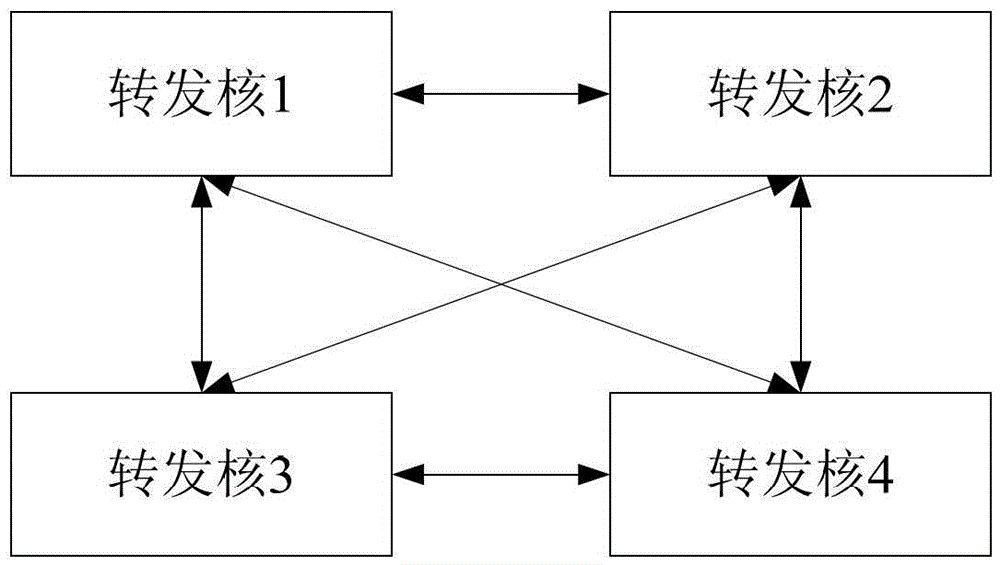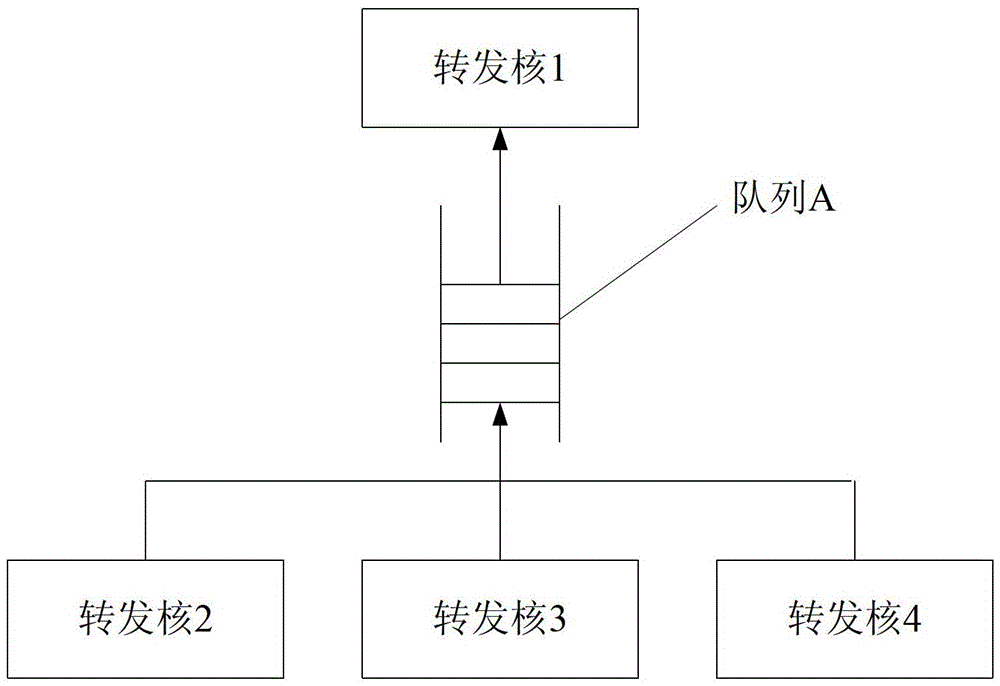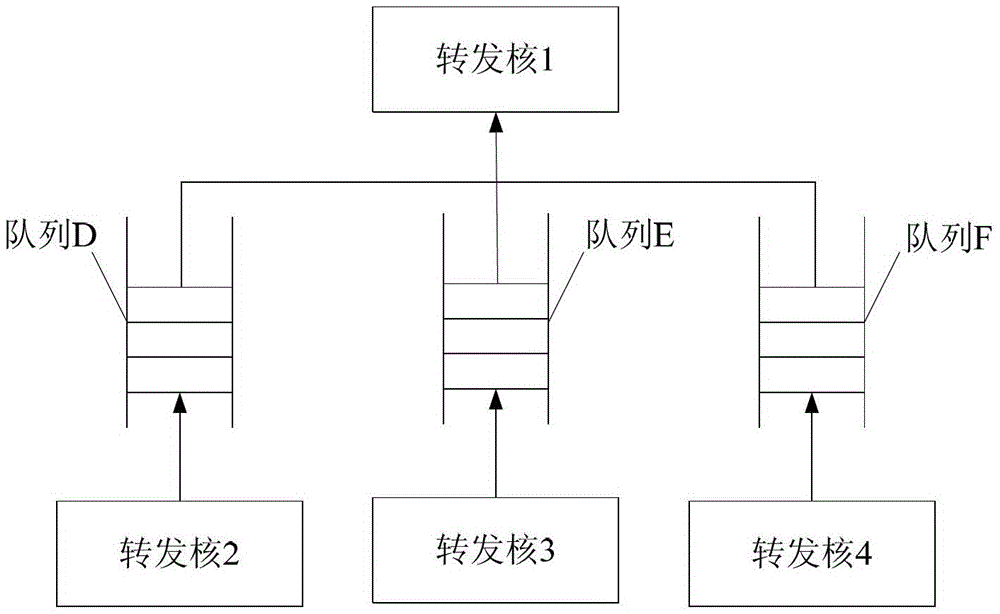A method and device for inter-core data packet caching in a multi-core system
A multi-core system and data message technology, applied in the field of network communication and transmission, can solve the problems of unfavorable multi-core data message forwarding business promotion and application, inability to guarantee priority caching, poor inter-core burst resistance performance, etc., so as to improve inter-core resistance. The effect of burst performance
- Summary
- Abstract
- Description
- Claims
- Application Information
AI Technical Summary
Problems solved by technology
Method used
Image
Examples
Embodiment 1
[0060] In this embodiment, it is assumed that the multi-core system has four forwarding cores to realize the forwarding of messages between forwarding cores. The structural diagram is as follows figure 1 As shown, they are respectively forwarding core 1, forwarding core 2, forwarding core 3 and forwarding core 4, and any two forwarding cores can transmit messages to each other. In this embodiment, each forwarding core is provided with a FIFO buffer queue corresponding to other forwarding cores one-to-one for receiving other forwarding core data messages, such as image 3 As shown, for the convenience of description, image 3 Only the FIFO cache queue corresponding to forwarding core 1 and other forwarding cores is shown, where queue D is the FIFO cache queue corresponding to forwarding core 1 and forwarding core 2, and queue E is the FIFO cache queue corresponding to forwarding core 1 and forwarding core 3. Queue F is a FIFO buffer queue corresponding to forwarding core 1 and...
Embodiment 2
[0077] This embodiment still uses the data parameters of method embodiment 1, and adds a new parameter on the basis of method embodiment 1—the congestion threshold C of the whole machine, which is a positive integer, and N≤C<M. When the number of files S decreases to the congestion threshold C of the whole machine, the idle buffer resources start to be tight, and all packets cannot be guaranteed to be cached. High-priority packets are enqueued, and low-priority packets are discarded. Packets that match the ACL are high-priority packets, and packets that do not match the ACL are low-priority packets. A new filter operation for incoming packets is added, which can give priority to ensuring that high-priority packets enter the queue for processing when the packets passed between two forwarding cores are inevitably discarded. In this embodiment, it is assumed that C=2000, that is, when the number S of idle cached messages of the whole machine drops to 2000 messages (including 2000...
Embodiment 3
[0099] The solutions of method embodiment 1 and method embodiment 2 introduce the solution of the present invention from the perspective of message entry into the queue, and this embodiment describes the solution of the present invention from the perspective of message dequeue.
[0100] Figure 6 It is the flow chart of this embodiment, and the technical solution of the present invention is described by taking the message dequeue in the queue D as an example, as Figure 6 As shown, this embodiment includes the following steps:
[0101] Step 601: The packets in the queue D are about to be dequeued.
[0102] Step 602: Determine whether the current number of buffered packets in queue D is greater than queue threshold B?
[0103] In this step, before packet Y is dequeued, it is first necessary to determine whether the current number of buffered packets in queue D is greater than queue threshold B? If yes, go to step 603; otherwise, go to step 605.
[0104] Step 603: Packet Y i...
PUM
 Login to View More
Login to View More Abstract
Description
Claims
Application Information
 Login to View More
Login to View More - R&D
- Intellectual Property
- Life Sciences
- Materials
- Tech Scout
- Unparalleled Data Quality
- Higher Quality Content
- 60% Fewer Hallucinations
Browse by: Latest US Patents, China's latest patents, Technical Efficacy Thesaurus, Application Domain, Technology Topic, Popular Technical Reports.
© 2025 PatSnap. All rights reserved.Legal|Privacy policy|Modern Slavery Act Transparency Statement|Sitemap|About US| Contact US: help@patsnap.com



